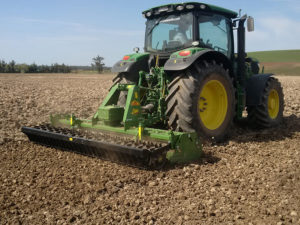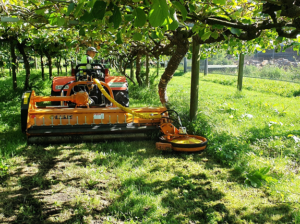Summer is in full swing and ensuring your animals are thriving during this time is crucial. Whether you have cattle, sheep, swine or any other creature, there is a multitude of things you should take into account during these months. Providing your farm with the things it needs to maintain production such as enhanced water supply, a change in diet and an increase in mulching are important. Feeding out during the dry summer months can be tough, so we have made you a list of things you should be doing and things you may need such as a gorse mulcher, to ensure your farm can be the best it can be, even when it is very hot!
Pastures
Declining pasture quality is discernible when the weather temperature increases. We see green pastures quickly turn to seed and a loss of food to our animals. Growth such as ryegrass and the like dry out quickly and can cause fire hazards. These plants also become inedible to your animals and need to be removed before disaster occurs. Pastures with ryegrass and the like need 100mm of rain to 1 tonne of edible grass, meaning they’re terrible for feeding your cattle, horses and other animals during the summer. Crops such as brassicas, corn, millet or sorghum offer more sustainable options and feed mixes for hotter months. These should be planted in November for grazing in January.
Gorse
After spring, we see a massive influx in the overgrowth of plants. One of the major plants we see thriving is gorse. Gorse typically grows on valley sides and in partially water-logged grounds. Gorse becomes a massive fire hazard in summer so it is crucial to remove it! This plant also can compete with your other vegetation, resulting in reduced plant production. You can feed your gorse to goats as it is a highly nutritious plant for them. Horses can eat new growth of this plant but it is not ideal for cattle or sheep to eat it ever. Farmgard’s range of mowers and mulchers ensures your gorse stays in check!
Water Supply
When it’s hot, every human and animal needs more water than usual. Ruminants, like cows and other herbivores, need 5 litres of water per 1kg of dry food, doubling when the weather is hotter. Certain animals may not eat when there isn’t enough water available and a drop in appetite and eating means a drop in your production. Providing adequate water to your animals during any period is crucial to their wellbeing. Ensure your water is clean and abundant, especially during the summer months.
Feeding & Diet
An increase in protein and a decrease in fibre is important for your animals to thrive during the warmer periods. Eating mature pasture, conserved hay and silage increase fibre resulting in reduced production due to slower rumen passage. Using a mulcher or fine chopper to reduce chewing time for your animals is key in reducing fibre during these months. Add protein to your silo for an adequate source of protein for your cattle, horses, sheep and the like.
Heat Stress
No one likes being hot and animals feel the heat just like humans do. We get irritated, stressed and lose our appetites. This is the same for animals and can cause weight loss due to reduced food intake. This is particularly detrimental to cows as this means a massive loss in milk production. Adding betaine to their feed can assist in this.
Contact Farmgard Today
With over 20 years of experience, Farmgard has your summer needs sorted. Providing farmers celli farm machinery for sale and abbey parts & machinery across New Zealand with innovative, built-to-last farming solutions is our aim. Get in touch today and see what we can do for your farm!





